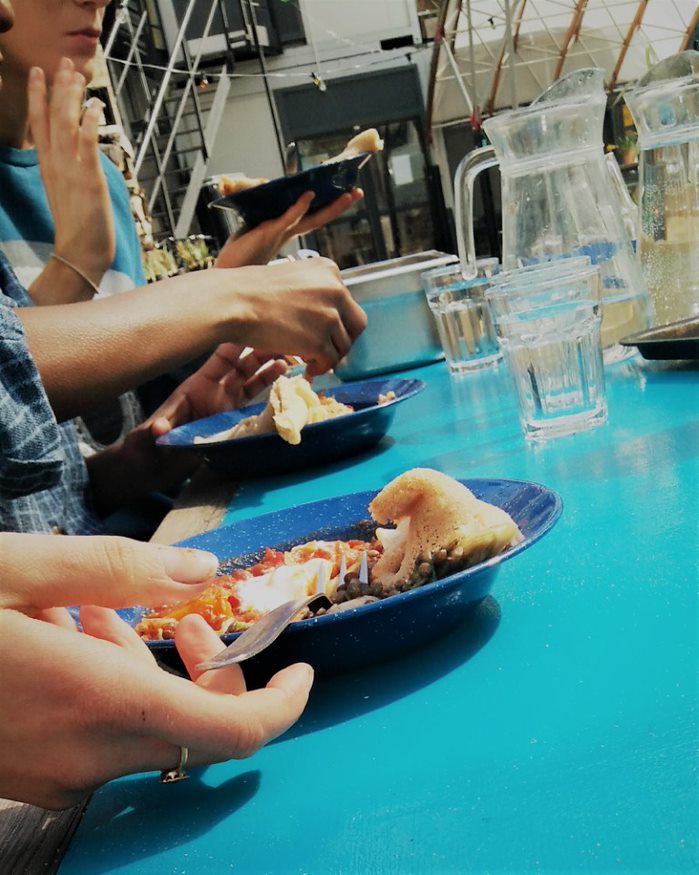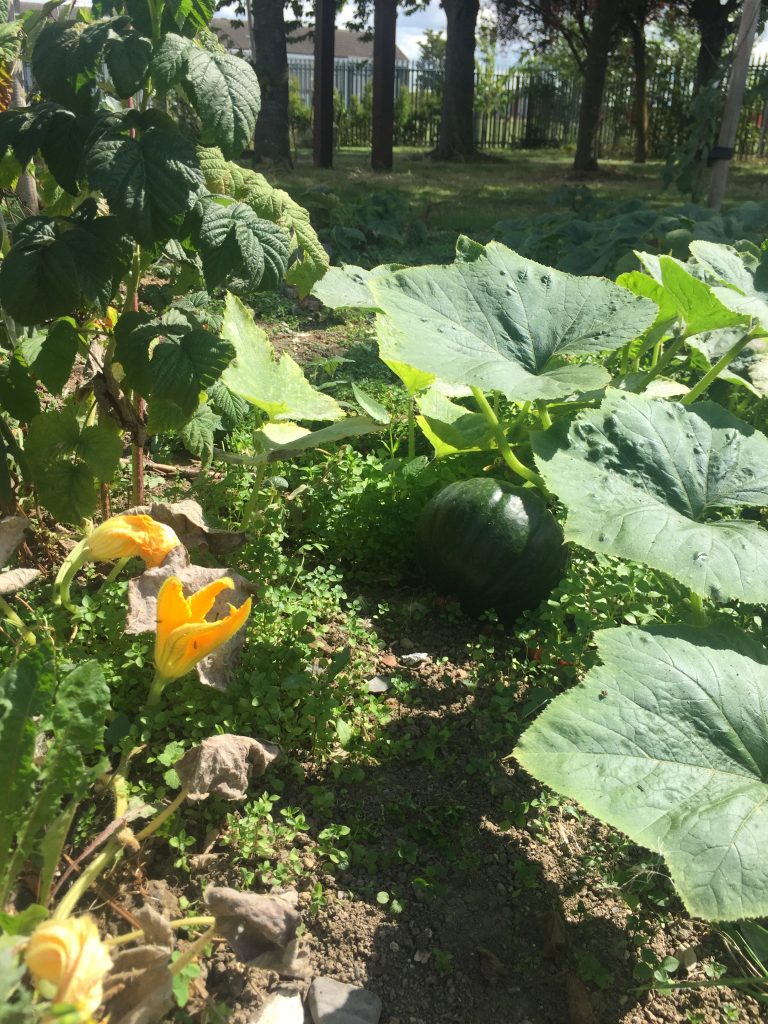Who needs another sustainability assessment toolkit for food systems?
Published by SHARECITY on the 5th September 2018.

For SHARECITY the digging isn’t over yet!
Hello again everyone out there following SHARECITY. After thinking through some fundamental questions that have been posed to us several times in various forms from some very intelligent and thoughtful people during the co-design process of the SHARECITY toolkit I have ended up writing a couple of blogs and this is the first. Here I ponder one recurrent question:
Why create a toolkit to measure the sustainability impact of food sharing initiatives at all?
First, if you are wondering what I am going on about regarding the SHARECITY sustainability impact assessment toolkit some background information can be found here.
So why create a toolkit in the first place? There are loads of sustainability assessment toolkits for food systems and even specifically urban food systems (also see here, here and here if you don’t believe me!). In establishing the SHARECITY100 database and conducting detailed ethnographical research of food sharing in 9 global cities, SHARECITY collected a lot of qualitative evidence that these initiatives are contributing to and improving the sustainability of urban food systems. It was clear that these initiatives tackle issues outlined in the UN sustainable development goals including #2 reducing hunger, #11 sustainable cities and communities, and #12 responsible consumption and production. In some cases, foods-sharing initiatives were founded to tackle a defined sustainability goal directly related to the food system such as reducing food-waste or food poverty. However, despite the fact that in the majority of cases food-sharing have defined sustainability goals, in many cases their impacts do not easily fit into established impact assessment frameworks for urban food systems such as the city regional food systems framework (CRFS) developed by the FAO.
 A major reason for this is that food and food systems are often secondary considerations in the impact of food-sharing initiatives. To expand a little on this, what I mean is that the shared experience relating to food (for instance preparing a meal together) is often the most important reason that people participate in food sharing initiatives. From feedback we have received during the co-design process it is clear that people do not necessarily attend community canteens because they love the food, nor do people establish a community garden solely because they want or need to grow their own food. A common theme for many food sharing initiatives is that they help to tackle the problem of loneliness and social dislocation in modern cities. We live in an age of unprecedented mobility (a long observed cause of loneliness) and migration is a major driver of growth in urban populations around the world. While technology has vastly increased our ability to connect with people across the globe, these online interactions ultimately leave less time for face-to-face communication (although some researchers dispute this). Loneliness can be extremely negative for people’s health and wellbeing and is associated with an increased mortality risk of around 26%.
A major reason for this is that food and food systems are often secondary considerations in the impact of food-sharing initiatives. To expand a little on this, what I mean is that the shared experience relating to food (for instance preparing a meal together) is often the most important reason that people participate in food sharing initiatives. From feedback we have received during the co-design process it is clear that people do not necessarily attend community canteens because they love the food, nor do people establish a community garden solely because they want or need to grow their own food. A common theme for many food sharing initiatives is that they help to tackle the problem of loneliness and social dislocation in modern cities. We live in an age of unprecedented mobility (a long observed cause of loneliness) and migration is a major driver of growth in urban populations around the world. While technology has vastly increased our ability to connect with people across the globe, these online interactions ultimately leave less time for face-to-face communication (although some researchers dispute this). Loneliness can be extremely negative for people’s health and wellbeing and is associated with an increased mortality risk of around 26%.
Food-sharing initiatives such as community gardens or canteens often represent so-called “third places” (other examples are public swimming pools or libraries) which allow people to mix with others in their community informally. Many food-sharing initiatives are particularly attractive as accessible third places because they are either free to access, or in many cases actually giving away food. But online food-sharing platforms also have a role to play here, they can facilitate for instance enabling new connections between people over shared meals, both in their locality but also across cultures while travelling. While it is not common for social initiatives or charities to communicate their impacts in terms such as the number of shared meals they facilitate, shared eating is known to reduce loneliness, increase feelings of engagement with the local community, and make people happier. In western societies, people are increasingly dining alone, with nearly 50% of meals in the US and UK now eaten solo. Tackling loneliness and increasing community cohesion through shared experiences around food would seem to be an impact worth shouting about! It’s also just one example of the type of impact food-sharing initiatives have in modern cities that is not accounted for in typical sustainability assessment frameworks of food systems.
Certainly, we are yet to find a suitable – read easy and practical to use – framework which urban food-sharing initiatives can pick up to evaluate their sustainability impacts. Many food-sharing initiatives are relatively young organisations (in the SHARECITY 100 database 68% of initiatives, which we know the start date of, are 10 years old or less) and do-not have secure long-term funding. These initiatives are often urgently working to deal with immediate issues around food in urban areas and do not have a lot of time to dedicate to additional data collection and impact reporting. We need to ensure our toolkit is as accessible and user-friendly as possible in order to make this project relevant to food-sharing initiatives on the ground.
So this blog was about why we have decided to make this toolkit, but what about our approach? There are many different ways we could develop this toolkit and one particularly important issue we need to tackle is where and how to make use of quantitative and qualitative approaches to indicate the impact of food-sharing initiatives. Some of the concepts we deal with in the toolkit are incredibly difficult to quantify so we have to think carefully about these questions.
More to follow on this in another blog coming soon….
Please get in touch if you have any thoughts, questions, advice or want to discuss the SHARECITY project for any reason.
Stephen
Email mackenst@tcd.ie Twitter @Stephen_Mac2
© 2015 - 2024 ShareCity | Web Design Agency Webbiz.ie








